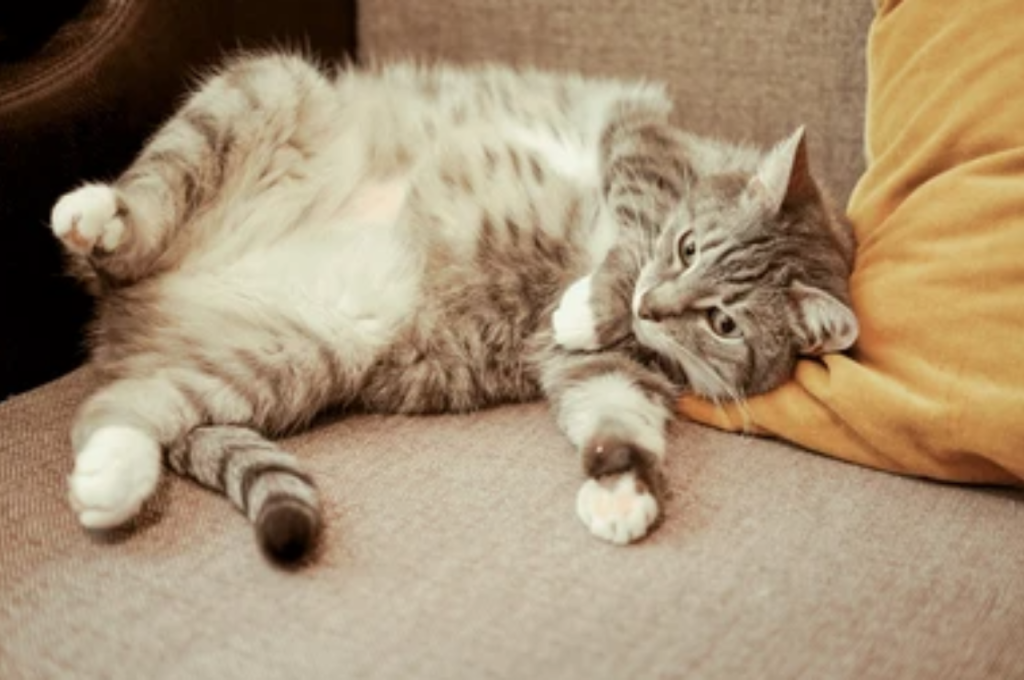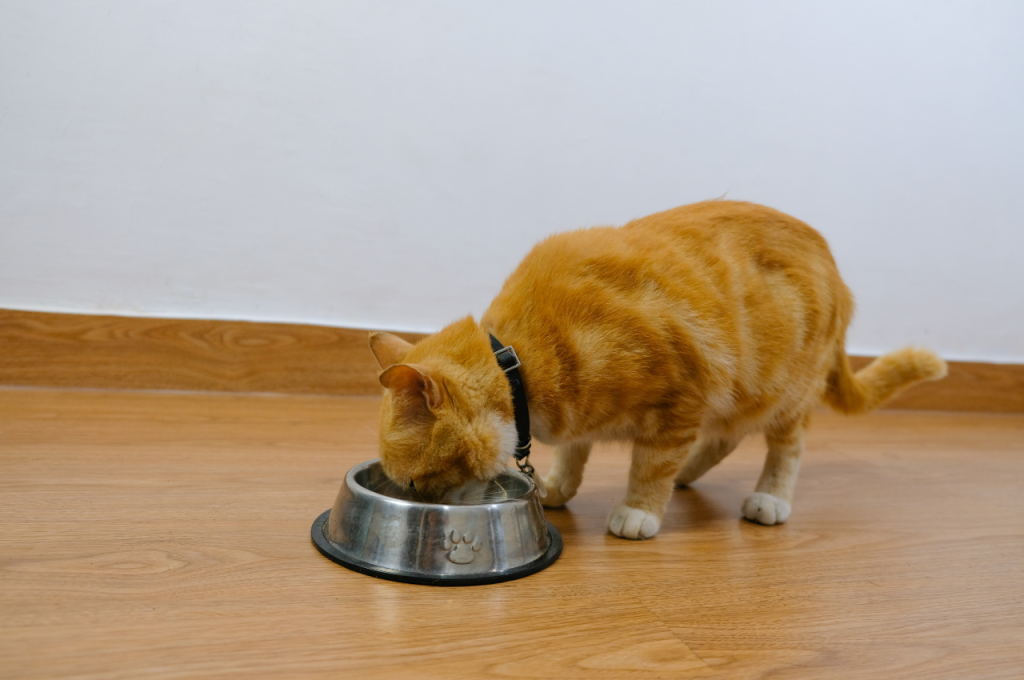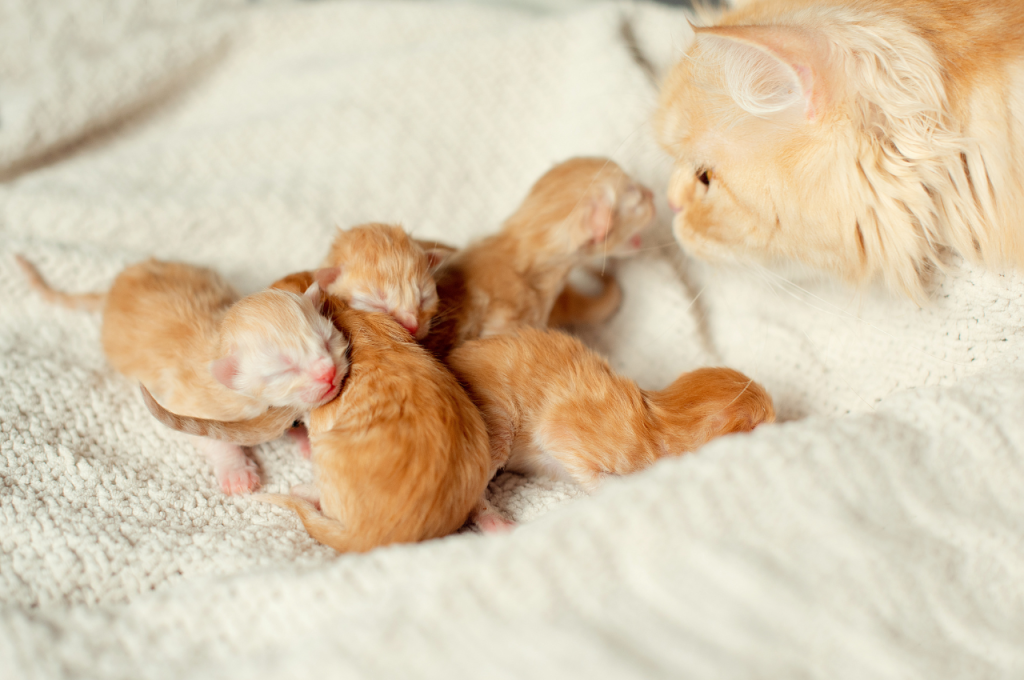The best setup for a pregnant cat includes a quiet, comfortable nesting area and a balanced diet to support her health and the kittens’ development. Providing a warm, secure space away from noise and disturbances can help the cat feel safe and reduce stress.
High-quality cat food rich in nutrients, especially protein and calcium, is essential during pregnancy to support the mother’s health and the growth of the kittens. Regular vet check-ups and monitoring of the cat’s behavior and weight are also important to ensure a successful and healthy pregnancy. By creating a safe, cozy environment and offering proper nutrition, you can help your pregnant cat through this crucial stage with care and support.
Introduction to Caring for a Pregnant Cat
Caring for a pregnant cat is an exciting and rewarding experience. Just like any expectant mother, a pregnant cat requires special attention, care, and support to ensure a healthy pregnancy and the birth of strong, healthy kittens. This article will guide you through the best setup for a pregnant cat, covering key considerations for a healthy pregnancy and providing tips for creating a safe and comfortable environment for your feline friend.

The Joy of Expecting Kittens
Welcoming a litter of kittens into the world is a heartwarming experience. Witnessing the joy of a pregnant cat as she prepares to give birth is truly special. It’s important to provide her with a warm and secure environment that promotes relaxation and minimizes stress.
Key Considerations for a Healthy Pregnancy
During pregnancy, a cat’s nutritional needs change, and it’s essential to provide a balanced diet that supports her and her developing kittens. Regular vet check-ups, a clean and comfortable nesting area, and monitoring her health and behavior are crucial for ensuring a smooth and healthy pregnancy.
Identifying Pregnancy in Cats
Identifying pregnancy in cats involves observing physical and behavioral changes. Signs include a swollen belly, increased appetite, and enlarged nipples. Pregnant cats may also become more affectionate or seek out quiet, secluded areas. A veterinary visit can confirm pregnancy and ensure the cat’s health throughout the gestation period.
Signs and Symptoms to Look Out for
Paying attention to the signs and symptoms of pregnancy in your cat is crucial for ensuring her well-being during this delicate time. Some common signs of pregnancy in cats include a swollen abdomen, increased appetite, nipple growth and color change, and behavioral changes such as seeking more attention or becoming more affectionate.
When to Visit The Vet
It is essential to schedule a veterinary visit as soon as you suspect that your cat may be pregnant. The veterinarian can confirm the pregnancy, provide important guidance on prenatal care, and advise on nutrition and exercise. Regular vet check-ups throughout the pregnancy will help monitor the health of the mother cat and her developing kittens.
Creating a Safe Space
When it comes to preparing for the arrival of a litter of kittens, one of the most important things you can do for your pregnant cat is to create a safe and comfortable space for her. This will not only provide her with a sense of security, but it will also help ensure the health and well-being of both her and her kittens. In this article, we will explore the essential elements of creating a safe space for your pregnant cat, focusing on choosing the right location and setting up a nesting area.
Choosing The Right Location
When choosing a location for your pregnant cat’s safe space, it’s important to consider her comfort, safety, and privacy. Here are a few factors to keep in mind:
- Quiet and Peaceful: Select an area in your home that is away from loud noises and high foot traffic. This will help your cat feel more relaxed and reduce stress.
- Temperature Control: Ensure the room is at a comfortable temperature, typically between 68°F and 75°F (20°C and 24°C). Avoid areas that are too hot or too cold, as extreme temperatures can be harmful to the mother and her kittens.
- Easy Access: Choose a location that is easily accessible for your pregnant cat, especially as she nears her due date. Avoid spaces that require her to navigate stairs or obstacles.
Essential Elements of a Nesting Area
A nesting area provides a safe and cozy space for your pregnant cat to give birth and nurse her kittens. Here are the essential elements to include:
- Nesting Box: Provide a spacious and comfortable nesting box for your pregnant cat to give birth in. The box should be large enough for her to move around comfortably and have low sides for easy access.
- Bedding: Line the nesting box with soft and absorbent bedding, such as clean towels or blankets. This will provide warmth and comfort for the mother and her kittens.
- Privacy: Place the nesting box in a secluded area, away from other pets and disturbances. This will help your cat feel secure and minimize external stressors.
- Food and Water: Ensure your pregnant cat has access to fresh water and a balanced diet throughout her pregnancy and during the nursing period. Place food and water bowls near the nesting area for easy access.
- Medical Supplies: Keep essential medical supplies, such as clean towels, scissors, and a heating pad, nearby in case of emergencies or complications during labor.
By carefully selecting the right location and setting up a comfortable nesting area, you can create a safe space that promotes a positive and stress-free environment for your pregnant cat. Remember to monitor her closely during the pregnancy and consult with a veterinarian for any specific advice or concerns.
Nutrition for The Expectant Mother
Proper nutrition is essential for the health and well-being of a pregnant cat. During this critical time, the mother’s diet needs to be adjusted to support the growth and development of her kittens. Providing the right nutrients and supplements can help ensure a healthy pregnancy and successful delivery. Here are some important considerations for the best setup of nutrition for a pregnant cat.

Dietary Adjustments for Pregnancy
When a cat is pregnant, her nutritional needs change to support the growing kittens. It is crucial to provide a balanced diet that is rich in essential nutrients. The expectant mother should be fed high-quality cat food that is specifically formulated for pregnant or nursing cats. This food is designed to meet the increased energy requirements and provide the necessary vitamins and minerals.
During pregnancy, the mother cat may experience a decrease in appetite or have specific food preferences. It is important to monitor her eating habits and ensure she is consuming enough food. Feeding smaller, more frequent meals throughout the day can help ensure she is getting the necessary nutrients.
Supplements and Vitamins for Health
In addition to a balanced diet, pregnant cats may benefit from certain supplements and vitamins. These can help support the mother’s overall health and the development of her kittens. However, it is essential to consult with a veterinarian before introducing any supplements.
One common supplement is folic acid, which is important for the healthy development of the kittens’ nervous system. Omega-3 fatty acids can also be beneficial for the mother’s immune system and the development of the kittens’ brains and eyes. Vitamin E is another important nutrient that aids in the reproductive health of the mother cat.
It is important to note that excessive amounts of certain vitamins and minerals can be harmful to the mother and her kittens. Therefore, it is crucial to follow the veterinarian’s recommendations and not exceed the recommended dosage.
Overall, providing the best setup for a pregnant cat’s nutrition involves making dietary adjustments and incorporating appropriate supplements and vitamins. Ensuring a balanced diet and consulting with a veterinarian will help support the mother’s health and the successful delivery of healthy kittens.
Routine Care and Monitoring
Proper routine care and monitoring are essential for a pregnant cat’s health and the well-being of her litter. The best setup for a pregnant cat includes providing a comfortable and quiet space, regular check-ups with a veterinarian, a balanced diet, and plenty of water.
Regular Veterinary Check-ups
Regular veterinary check-ups are crucial for monitoring the health of pregnant cats.
- Schedule appointments with a veterinarian for routine examinations.
- Discuss vaccination schedules and nutrition with the vet.
- Monitor weight gain and general health under veterinary guidance.
At-home Monitoring Tips
At-home monitoring helps ensure the well-being of your pregnant cat.
- Observe eating habits and water intake daily.
- Provide a quiet and safe environment for the cat.
- Track behavioral changes and report any concerns to the vet.
Preparing for The Arrival of Kittens
Create a cozy, secluded area with a nesting box for your pregnant cat to feel safe and comfortable before giving birth. Provide soft bedding, food, water, and litter nearby for easy access during this special time. This setup will help ensure a stress-free environment for the arrival of the kittens.
Bringing new life into the world is an exciting time, and when it comes to pregnant cats, there are a few things you can do to ensure a smooth and safe birthing process. Preparing for the arrival of kittens includes understanding what to expect during labor and having the essentials on hand to ensure successful delivery. Let’s dive deeper into these important considerations.
What to Expect During Labor
It’s essential to be prepared for the signs of labor in your pregnant cat. Some signs that labor is imminent include your cat becoming restless, licking her genitals, and nesting behavior. Once labor begins, contractions will start, and you may notice your cat panting, vocalizing, and possibly having a discharge. It’s important to monitor your cat during labor and contact your veterinarian if you notice any concerning symptoms.
Essentials for the Birthing Process
To ensure a successful birthing process, there are a few essential items you should have on hand. These include clean towels, scissors, and dental floss. You may also want to have a heat source nearby, such as a heating pad or hot water bottle, to keep the kittens warm. It’s also crucial to have a clean and quiet space for your cat to give birth. Consider creating a cozy nesting box for your cat to feel safe and comfortable during delivery.
In conclusion, preparing for the arrival of kittens involves understanding what to expect during labor and having the necessary essentials for a successful birthing process. By being prepared and having everything on hand, you can help ensure a safe and comfortable experience for your pregnant cat and her new litter.
Post-birth Care for Mothers and Kittens
Post-birth care for mother cats and kittens includes ensuring a clean, warm, and quiet environment. Monitor the mother for any signs of distress or health issues, and ensure she has plenty of nutritious food and water. Regularly check the kittens for proper growth and nursing, and keep their bedding clean.
First Steps After Birth
After the birth of the kittens, it’s crucial to provide a warm, safe, and quiet environment for the mother and her newborns. Place them in a clean, comfortable nesting box or area, lined with soft bedding. Ensure that the space is free from drafts and disturbances.
Feeding and Health Monitoring
- Feeding: The mother should be offered high-quality, nutritious food and an ample supply of fresh water to support her in producing milk for her kittens. Monitor her closely to ensure she is eating well and has no signs of health issues.
- Health monitoring: Regularly check the mother’s and kittens’ weight to ensure they are thriving. Keep an eye out for any signs of illness or distress, and if any concerns arise, seek veterinary attention promptly.
Ensuring a Healthy Start for Newborn Kittens
Setting up a comfortable and safe environment for a pregnant cat is crucial for ensuring a healthy start for newborn kittens. Providing a cozy nesting area, access to fresh water, and a balanced diet are key components in creating the best setup for a pregnant cat.

Recap of Key Points
A pregnant cat requires a safe and comfortable environment to give birth and care for her kittens. Providing a secluded nesting area, high-quality nutrition, and regular veterinary check-ups are crucial for the well-being of the mother cat and her unborn kittens.
- Secluded nesting area
- High-quality nutrition
- Regular veterinary check-ups
Encouragement for Responsible Pet Care
Ensuring the best setup for a pregnant cat not only supports the health of the mother and her kittens but also fosters responsible pet ownership. By providing a nurturing environment and seeking professional guidance, pet owners can contribute to the well-being of their feline companions and promote a positive start for newborn kittens.
Conclusion
Providing a comfortable, safe, and stress-free environment for a pregnant cat is crucial. Ensuring proper nutrition, quiet space, and regular veterinary check-ups are essential for the well-being of both the mother and her kittens. By following these guidelines, you can help your pregnant cat have a successful and healthy pregnancy.
